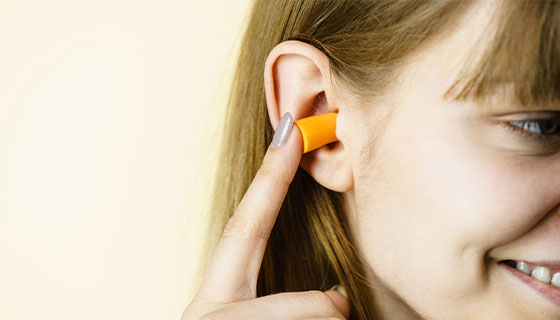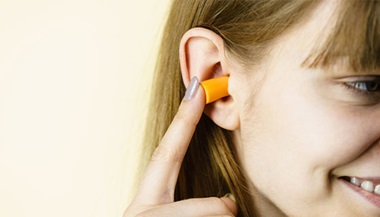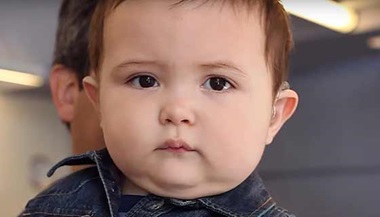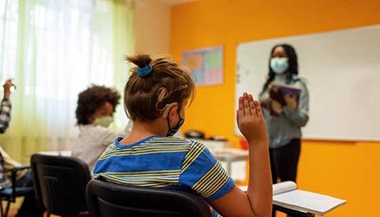Your Child's Hearing
Learning that your child may have a hearing loss can be concerning for many parents. Yet there are lots of reasons for optimism and plenty of different ways to address hearing loss in children. The most important thing to remember is that your child can still be successful in school, sports and other activities that children enjoy.
What You Need to Know
- There are plenty of different ways to address hearing loss in children.
- Children who aren't reaching hearing developmental milestones should be further evaluated.
- Treatment options depend on the type and degree of severity of your child's hearing loss.
First Steps When Hearing Loss Is Suspected
What should I do if my child does not respond to my voice or loud noises?
There are hearing developmental milestones for all children, and if your child does not seem to react to noises or speech, you should talk to your pediatrician. If you suspect your child has a hearing loss, you should have your child evaluated immediately by a pediatric otolaryngologist and audiologist who specializes in treating children.
What should I expect when I bring my child to your center?
Your child will be evaluated by one of our pediatric otolaryngologists. Your child will also have his or her hearing tested by one of our audiologists who specialize in hearing loss in children. The tests vary depending on your child’s age.
Pediatric hearing testing usually involves one or more the following hearing tests:
Treatment Options for a Hearing Loss Diagnosis
If my child is diagnosed with hearing loss, what should I expect in terms of treatment?
Depending on the type and degree of severity of your child’s hearing loss, one or more of these treatments may be appropriate:
- Speech and language therapy: A speech-language pathologist can help create an individualized program for your child. For the best results, this should be started as soon as possible, as a child’s brain is programmed to learn language during the first six years of life — the first three years being the most critical. After this period it becomes more difficult to acquire language and speech skills.
- Hearing aids: Many children can be helped with hearing aids, which are small battery-operated devices placed behind or in the ear to help with hearing. There are many sizes and styles of hearing aids, and different technologies available. Speak to your audiologist about the options available to your child and what type of hearing aid may best suit his or her needs.
- Cochlear implant: Cochlear implants do not restore sound to its natural state, but use technology to process sound in a way the brain can understand to improve communication.
- Bone anchored hearing aid (BAHA): BAHAs combine a sound processor with a small titanium fixture that a surgeon implants behind the ear. This unique system allows sound to be conducted through the bone rather than via the middle ear — a process known as direct bone conduction. Prior to undergoing the BAHA implant surgery, the audiologist may recommend a temporary headband-type hearing aid for your child to help determine if this technology would be helpful. Younger children use a headband with the BAHA until they are old enough for surgery, or until the family chooses to move forward with surgery.
- Surgery: In some cases your doctor may recommend surgery to place tubes in your child’s ears, which help drain fluid away from the ear drum. Other surgeries can help correct certain hearing problems. Learn more about ear tube insertion.
Johns Hopkins Audiology
Our team of audiologists provides hearing testing, hearing aid selection and fitting, and implantable hearing devices for people of all ages.






